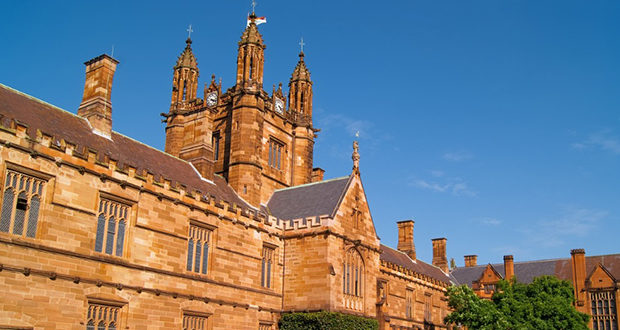Student uncertainty and animosity regarding potential course cuts at the University of Sydney (USyd) Faculty of Arts and Social Sciences (FASS) has escalated, with a student general meeting called by Usyd’s student representative council (SRC) on Wednesday via Zoom.
Called “Future Fass”, the SRC says the proposal to cut some courses and merge departments “threatens the very nature of what an arts degree is at USyd by destroying diversity and specificity within the faculty and student’s educational experiences”. Various petitions to oppose the proposed changes have also garnered support from students, with almost a 1000 being submitted to management with feedback.
A leaked list of FASS enrolments seen by Campus Review, as well as the university’s draft change proposal (DCP), show that up to 250 undergraduate units are potentially on the chopping block. The SRC says that “non-essential undergraduate units of study with less than 24 enrolled students are set to be cut”, as well as all postgraduate units with fewer than 16 enrolments.
The “Future Fass” proposal also includes “unit of study mergers”, which the SRC states is a way of condensing educational content by “co-tabling units of study between different departments”. According to the council, this could result in subjects in sociology relating to feminism and subjects in cultural studies on gender being taught “collectively”.
The rationale for the proposed changes is covered in the DCP document.
“The faculty has six schools, four of which are further structured into departments. The financial viability of our nearly 50 teaching subject areas is uneven with a very small number of disciplines with high concentrations of international student enrolments cross-subsidizing the rest…” it says.
“The faculty proposes to realign the disciplinary mix of its schools in order to support disciplinary synergies in the arts, humanities and social sciences that will enhance teaching and research performance; rationalise cognate teaching programs by increasing flexibility between disciplines; and reduce internal EFTSL competition between departmental or disciplinary groups.”
The SRC believes that such moves threaten to strip “the disciplinarity of learning sociology or learning gender studies”.
“The autonomy of our department to design its own coursework and develop its own learning opportunities is at risk. The teaching of our specific methodologies and the expertise of our educators will be diminished through the merging of courses with other disciplines. This gravely jeopardises the future of our department and students wanting to learn about gender and cultural studies at the University of Sydney,” third year gender and cultural studies student Ell Haber said.
The SRC adds that the FASS restructure appears to be turning “departments” to “disciplines”, resulting in disciplines being merged together. Some examples include writing studies with English; Indian subcontinental studies with Asian studies; peace and conflict studies with sociology; social policy, biblical studies and studies in religion.
The SRC education officer Maddie Clark says the proposed cuts belie the “concept that going to university is about learning and student choice”. This is particularly relevant, given the fact that USyd is renowned for having the largest arts faculty in the country.
“These changes are being made by management to maximise their profits and show how even the richest unis like Sydney Uni are pursuing a strategy of corporatisation and streamlining,” she says.
USyd students have called these cuts “baseless and cruel”, and have pointed to management’s own figures that state FASS is projected to make a $135 million surplus in 2021 after making a $61 million surplus in 2020.
“FASS management justify these cuts on the basis of declining government funding and rising costs, however their surpluses tell a different story,” the SRC said.
Kelton Muir, of the Education Action Group, said that “more and more there is a push for interdisciplinary studies, which have many staff concerned". He added that this could have a significant effect on the methodologies being taught in different disciplines, and also questioned how these proposed changes would affect honours students.
A spokesperson for the university told Campus Review that of roughly 1800 units of study about 80 will be “rested or or retired” within the faculty.
“Approximately 80 – all with small or no enrolments – will be rested or retired by our Faculty of Arts and Social Sciences. Other units will be rested as part of our usual annual process of accommodating staff movements and course changes,” they said.
“The aim of the faculty’s highly targeted curriculum reform project is to reduce bureaucracy and double-up between disciplines, enable greater cross-disciplinary collaboration and produce a more consistent student experience across the faculty. These changes will improve our students’ experience and will not affect their progression.
“As with all higher education institutions, we need to look for ways to ensure that our high-quality teaching and research is underpinned by financial sustainability going forward. This is because the sector is facing significant challenges – from the impacts of COVID-19 as well as pre-pandemic factors such as years of reduced government funding, revenue being outstripped by costs and over-reliance on international student fee revenue.
“The faculty has been in extended discussion with staff to understand their preferences for how to best position itself to navigate these challenges. Discussions have encompassed the possibility of restructuring the current six schools (including the merger of some disciplines) as well as agreeing on a set of principles for the reform of our curriculum.
“FASS is currently forecasting a $130m surplus in 2021, driven almost exclusively by increases in international student enrolments,” the spokesperson said.
Do you have an idea for a story?Email [email protected]
 Campus Review The latest in higher education news
Campus Review The latest in higher education news

